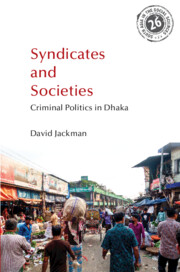Introduction
Published online by Cambridge University Press: 31 August 2024
Summary
Rubel was only eight or nine when he came to Dhaka. He took a train alone from the north, arrived at a station in the centre of the city and walked to a nearby bazaar where he has worked ever since. Memories of his family and village have blurred over the years, and today he is married with two children and stays in a basti (slum) elsewhere in the city. For people who have grown up on the streets of Dhaka, such stories are common. Some recall odd details of their home but have forgotten the name of their village and even family. Some ran away from poverty and cruelty, and described a widowed mother, a resentful stepparent, a neglectful father, mental illness, abuse at school or the madrasah. For some, the story of their arrival is bound up with a precise moment of fear, such as losing a prized asset and not daring to return home or a particularly brutal argument. For others, the streets have always been their home, growing up in makeshift shacks formed from tarpaulin sheets that dot stretches of pavement, and where even today some babies are born.
Dhaka, the capital of Bangladesh, is one of the most densely populated cities on earth. People here live in a sprawling mix of apartment blocks, a few upmarket neighbourhoods and large bastis. Others skirt the edges of these in bazaars, transport terminals and pavements. Despite being one of the most populous cities on earth, it is little known in the so-called Global North, so much so that foreigners often pronounce it ‘Dakar’ after the Senegalese capital. As a city it is rarely deemed beautiful by outside eyes, unlike its iconic cousin Kolkata, nor does it boast obvious distinctions to draw tourists or wider interest. When Dhaka does appear in the world's media, it is sometimes in reference to its violent politics, the garment factories which sit at its edges or its frequent designation as one of the least liveable cities in the world. The only Western film to feature Dhaka – a recent Netflix production concerning the abduction of an Indian drug lord's son and a white mercenary hero – was filmed in India and Thailand, and its earlier title of ‘Dhaka’ scrapped for the more marketable Extraction.
- Type
- Chapter
- Information
- Syndicates and SocietiesCriminal Politics in Dhaka, pp. 1 - 21Publisher: Cambridge University PressPrint publication year: 2025

